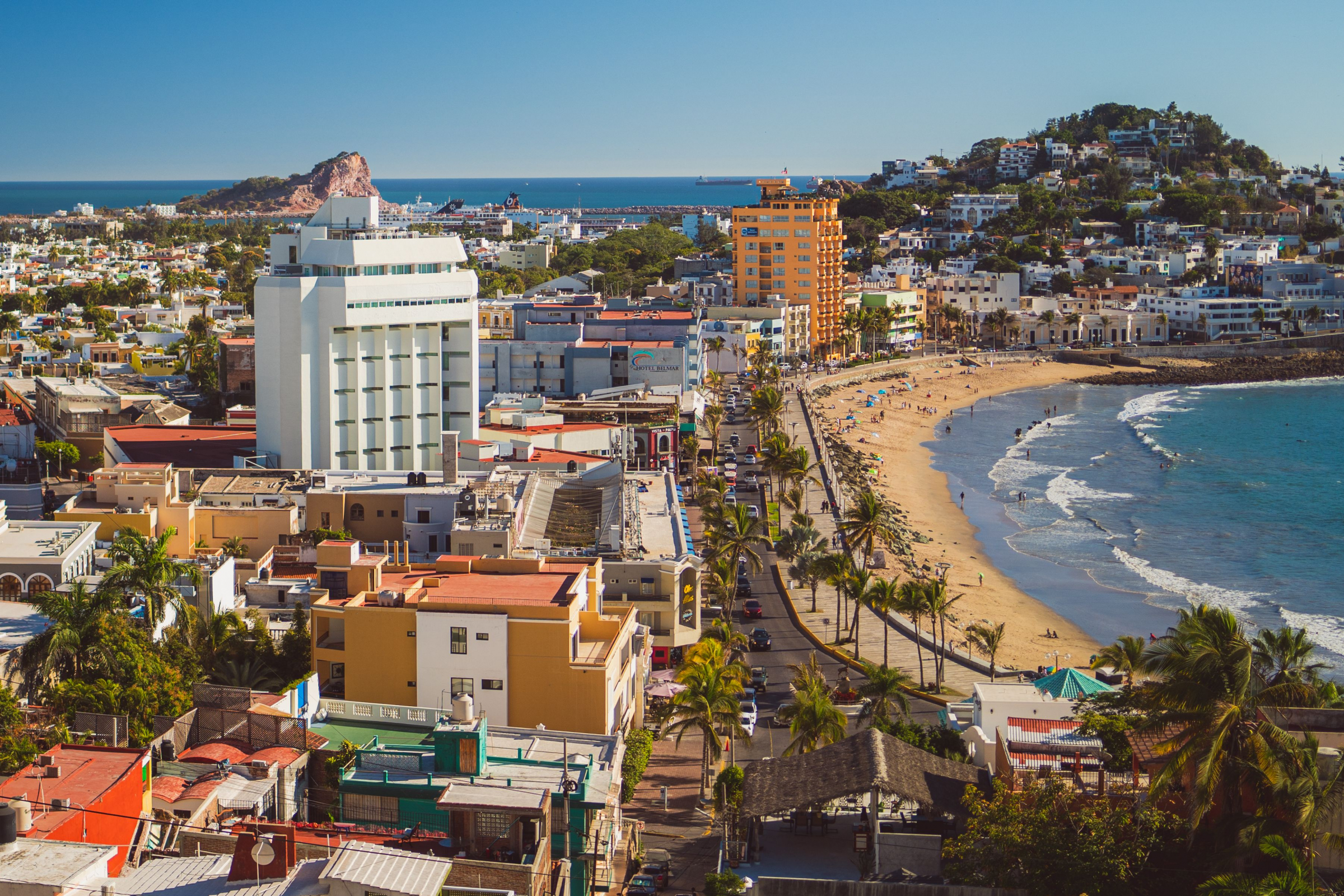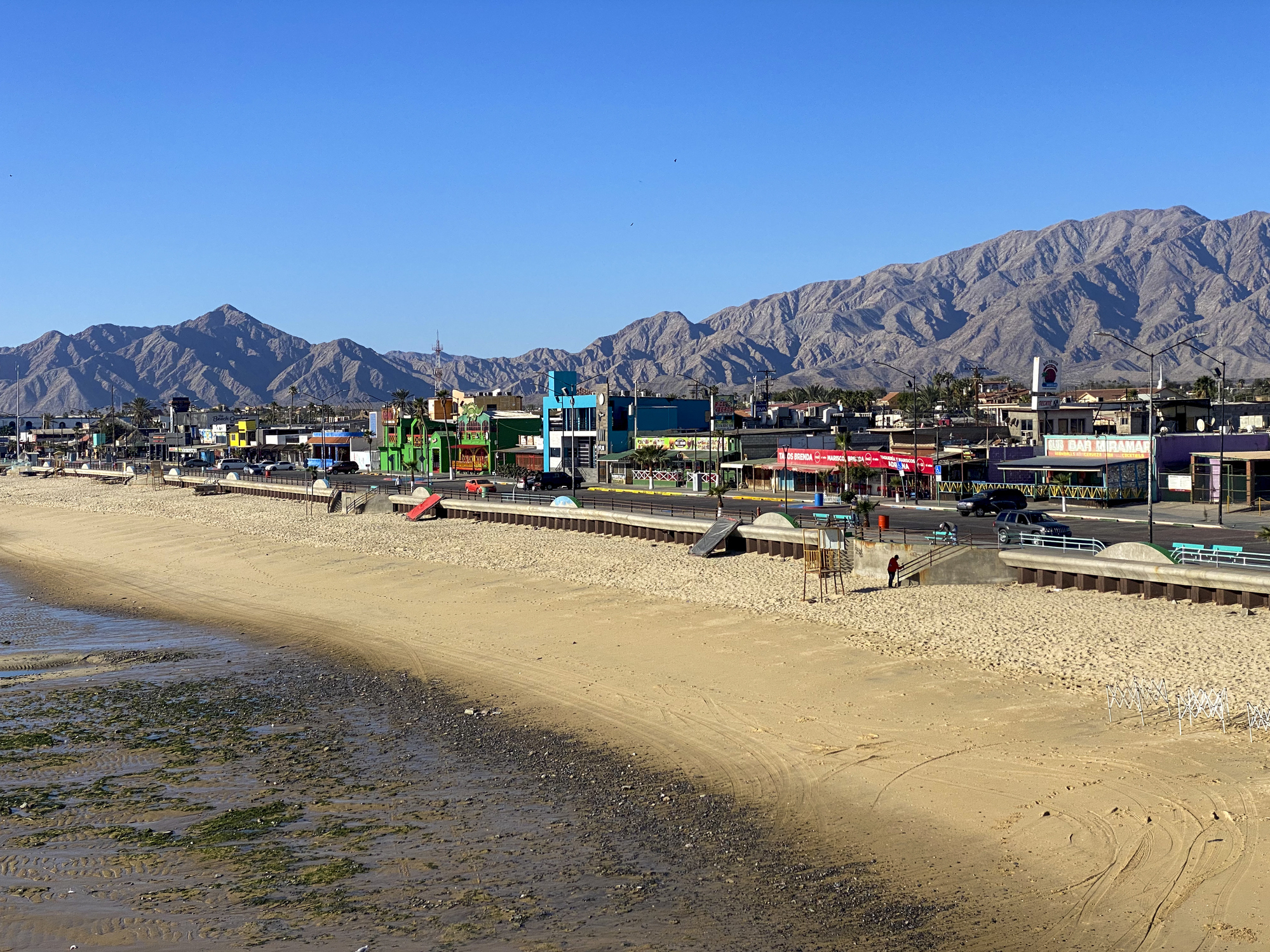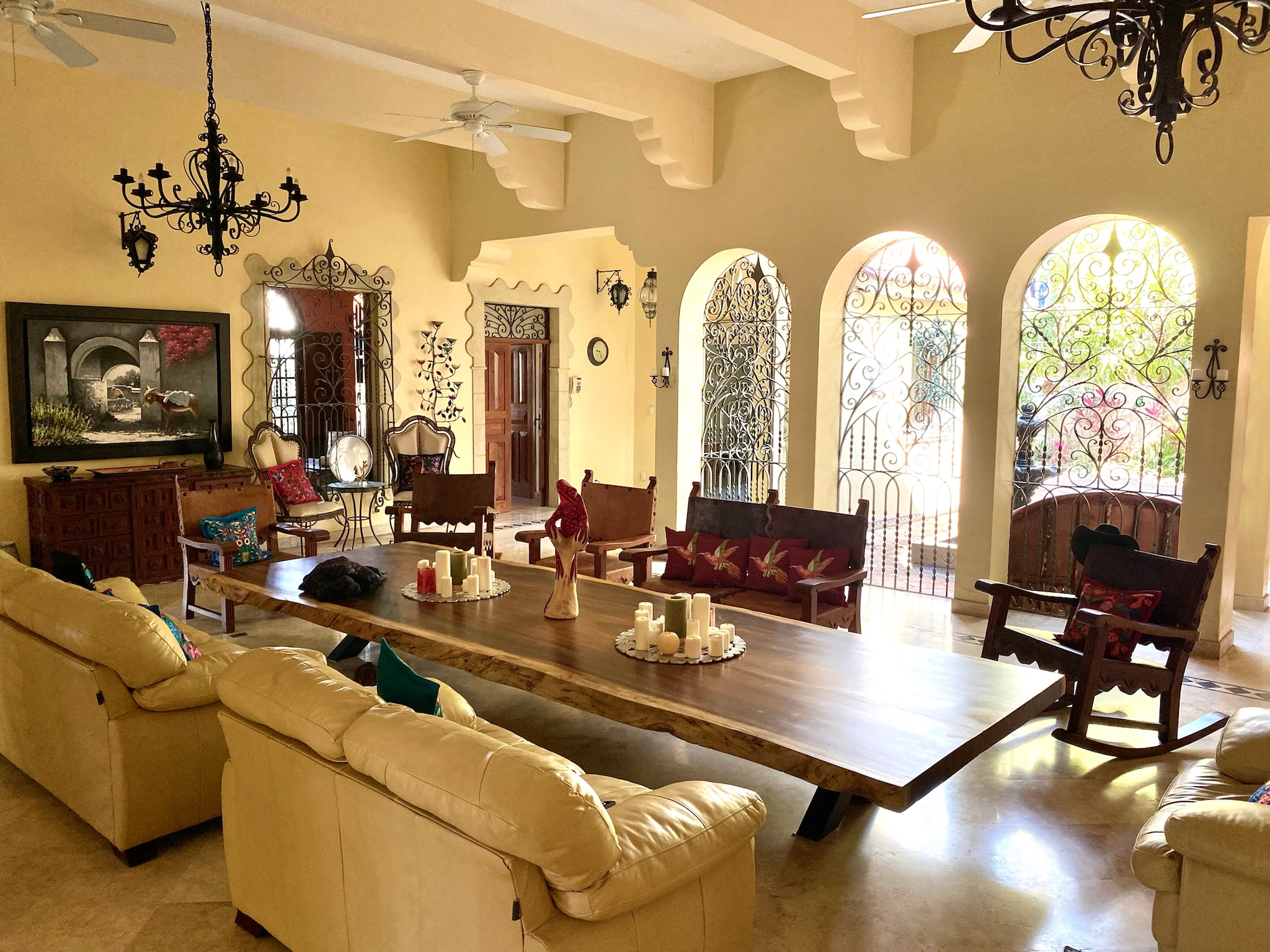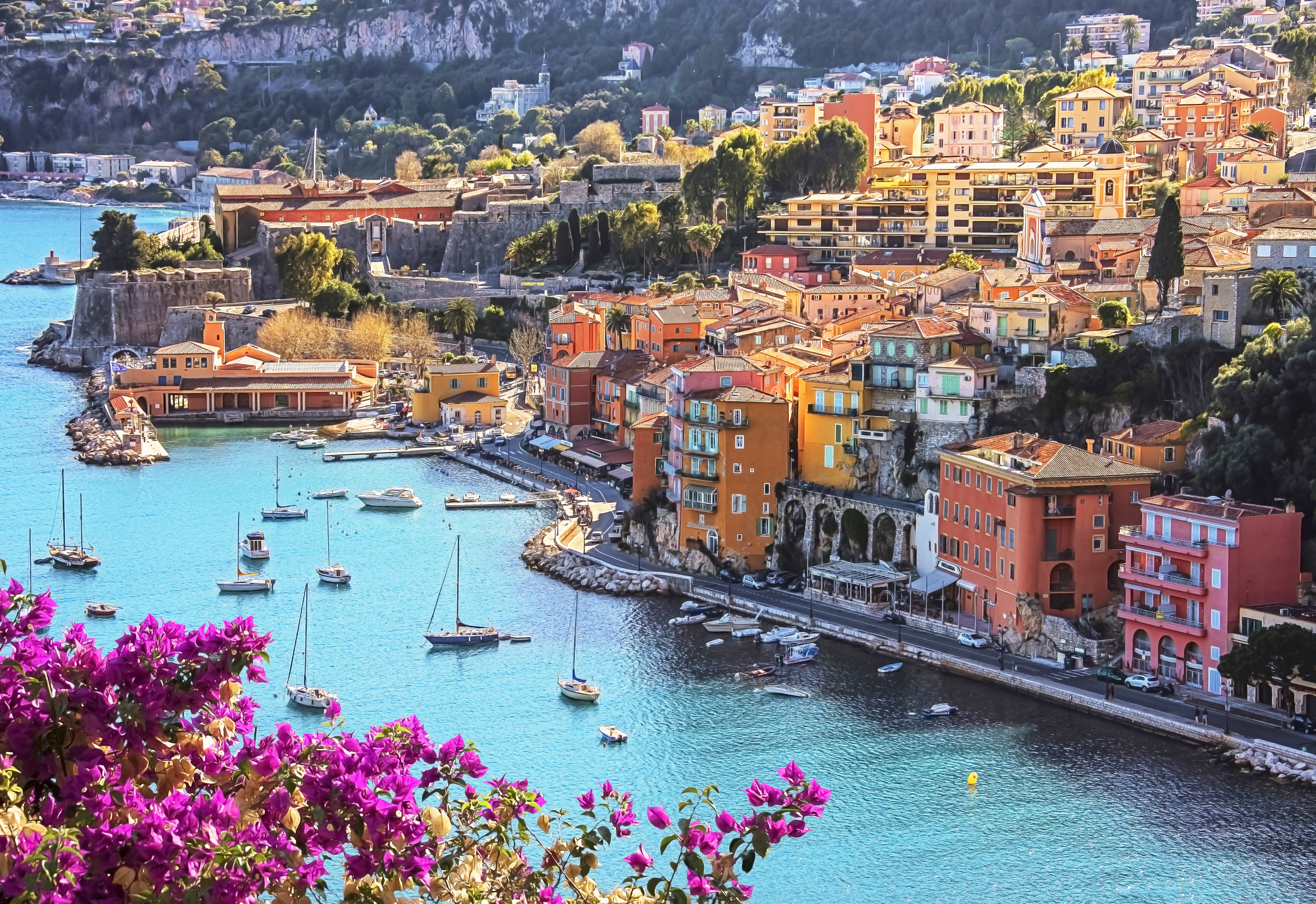Have you ever thought of purchasing real estate abroad as a vacation destination, investment property or retirement home?
Before investing in properties with views of the Paris skyline or on the sandy tropical beaches along Mexico's coast, there are a few things to consider. Buying in a foreign country comes with its own set of challenges.
Two local Realtors who embarked on such a venture share how they did it, the hurdles they encountered and what you should know prior to purchasing properties abroad.
She owns 3 coastal properties in Mexico
Penelope Huang, a Realtor with Golden Gate Sotheby's International Realty in Menlo Park, owns three properties in Mexico. She described the purchase of each property as "a different buying experience" with different challenges.
Huang said the first thing potential buyers should understand is that they can't purchase property wherever they want in Mexico.
She explained that foreigners can own land within 31 miles of the coast and only if it is placed in a bank trust. All three of her properties are in a trust with the names of her descendants.
Closing costs are higher than in the United States, she said. In Mexico, be prepared to pay 10% of the purchase price, compared to 3% to 6% in the United States. Closing is handled by a notario, a specialized attorney who can transfer real estate and perform other functions related to real property.
If you are organized, you can close in 60 days; if not, it could take six months to a year, Huang said.
Huang's adventure purchasing property abroad started 20 years ago when she and her husband bought a rundown colonial home in Mazatlán, a beach resort just south of the Gulf of California in the Mexican state of Sinaloa. They found the property online and worked with a listing agent in Mexico, who represented both the seller and the buyer – a practice that is typical there.
The Huangs spent two years restoring the home, first hiring an American expatriate who spoke Spanish and supervised the workers for them. The work went slowly while incurring weekly costs for workers' pay, including medical and Social Security with no good record keeping.
Finally, Huang got suspicious of why the work was taking so long and what the true costs were. She approached the foreman and asked for receipts. She discovered there were inaccuracies in the accounting. Apparently, the American expatriate had pocketed thousands of dollars, and she learned the work was delayed because he had told the workers that the Huangs couldn't afford to pay them.
In the end, Huang fired the expatriate and worked directly with the foreman and got the place restored. Lesson learned: She was too trusting of the American expatriate and realized it was best to deal directly with the foreman, even with her limited Spanish.
Later, the Huangs purchased a lot in a development in San Felipe, a city in the Mexican state of Baja California. The developer went bankrupt. She and her husband ended up taking the property out of the development and registering the land privately.
In 2020, the Huangs closed on an 88-acre parcel of raw farmland. They are currently developing a biodiverse, sustainable farm, with the goal of building an artisanal mezcal distillery. To do this, the Huangs established a Mexican corporation and applied for and received residency permits.
She found a studio on the French Riviera
For Jasmine Lee, a Realtor with Coldwell Banker Realty in Menlo Park, it was a life-changing call with her real estate coach in 2018 that spurred her to invest in real estate. Lee's coach instructed her to buy one property a year for 10 years, and to pay them all off within 10 years of buying each property. Lee's coach also told her to use her imagination – and that the investments could be anywhere in the world.
Lee excitedly set off with this new goal in mind. She made her first purchase in Arizona in 2019, and then in Pennsylvania in 2020. Her most recent and boldest investment, however, was a studio in the town of Villefranche-Sur-Mer on the French Riviera.
She described the process as "an incredible journey and learning experience."
Foreign-born citizens are allowed to purchase property in France, but they are required to provide higher down payments than French citizens, Lee said.
Since her French language skills were limited, Lee searched for a real estate agent who also spoke English. Lee dropped by several real estate offices in the area until she found an agent at Century 21 who was bilingual. He showed her a 250-square-foot studio with a view overlooking the Mediterranean Sea and equipped with basic appliances and furniture. It was a perfect match for her. The condominium is a 10-minute walk to the beach or train, and only 2 minutes to nearby shops and restaurants. She closed on the studio in May 2022.
Lee noted when she bought the studio, mortgage interest rates in France were much lower than in the United States. She was able to secure a 20-year fixed-rate loan for 1.45%. In comparison, the average fixed rate loan in the United States is about 7.5%, as of Aug. 23. Closing costs and notary fees were about 10% of the purchase price, and the bank required her to put down 30%. In comparison, the Federal Housing Administration Mortgage has a minimum down payment of only 3.5% for all qualified buyers in the United States. Non-U.S. citizens can get an FHA loan provided they can verify their residency status, work history, and financial track record.
Lee also learned that qualification for a loan in France is based on the borrower's income and the amount of actual debt carried by the borrower. Unlike the United States, France does not have a credit score ranking system.
Lee spent about $3,000 updating the furnishings and preparing the studio for use as an Airbnb. This year, the studio has been consistently from April to mid-October. At the end of the year, she plans to take the studio off Airbnb for a couple of months to renovate it.
In her first year of ownership, Lee has already learned a lot as the owner of a property that's thousands of miles away. She's had to deal with upset Airbnb guests and fix a lot of broken things from afar, such as her studio's air conditioning, plumbing and electricity. Her expenses for the mortgage, Homeowners Association fees, utilities and insurance are under 1,100 euros per month, or the equivalent of about $1,195 U.S. dollars. The costs for property management and cleaning fees fluctuate, and her property taxes are less than 1,000 euros per year, or the equivalent of about $1,086 U.S. dollars.
Real estate practices vary from country to country. Both Huang and Lee advise those interested in purchasing property abroad to research the country and real estate process in the particular county first, and try to learn some of the language before beginning their journey.
Things to consider before purchasing property abroad
• Are there restrictions on property ownership for foreigners?
• What is the home ownership rate of the area?
• Who does a real estate agent represent: the buyer, seller or both?
• Who pays commission fees?
• What is the real estate transaction process in the country: How long does it take to close on a property? Do they have title insurance?
General guidelines on practices in countries around the world can be found in the National Association of Realtors' online guide Real Estate Practices Around the World.
Silicon Valley Association of Realtors (SILVAR) is a professional trade organization representing 5,000 Realtors and affiliate members engaged in the real estate business on the Peninsula and in the South Bay. SILVAR promotes the highest ethical standards of real estate practice, serves as an advocate for homeownership and homeowners, and represents the interests of property owners in Silicon Valley.
The term Realtor is a registered collective membership mark which identifies a real estate professional who is a member of the National Association of Realtors and who subscribes to its strict Code of Ethics.
There's more ...
Looking for more real estate stories? Read Embarcadero Media's latest Real Estate headlines.





Comments